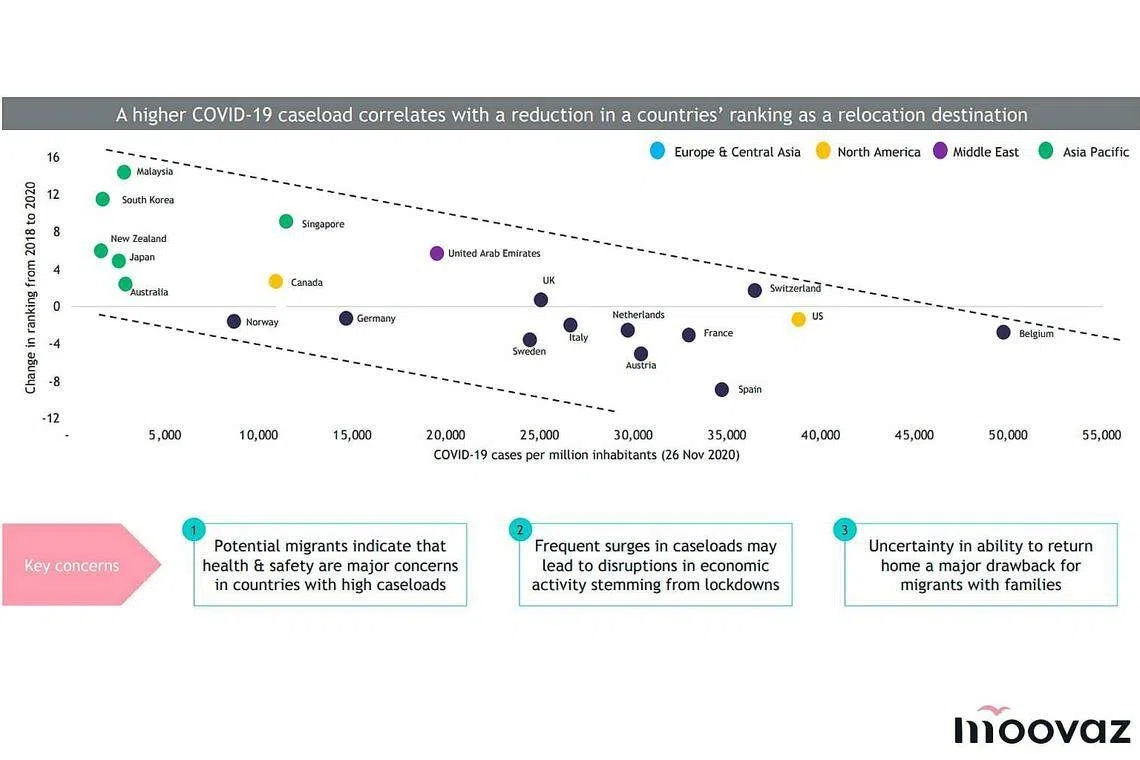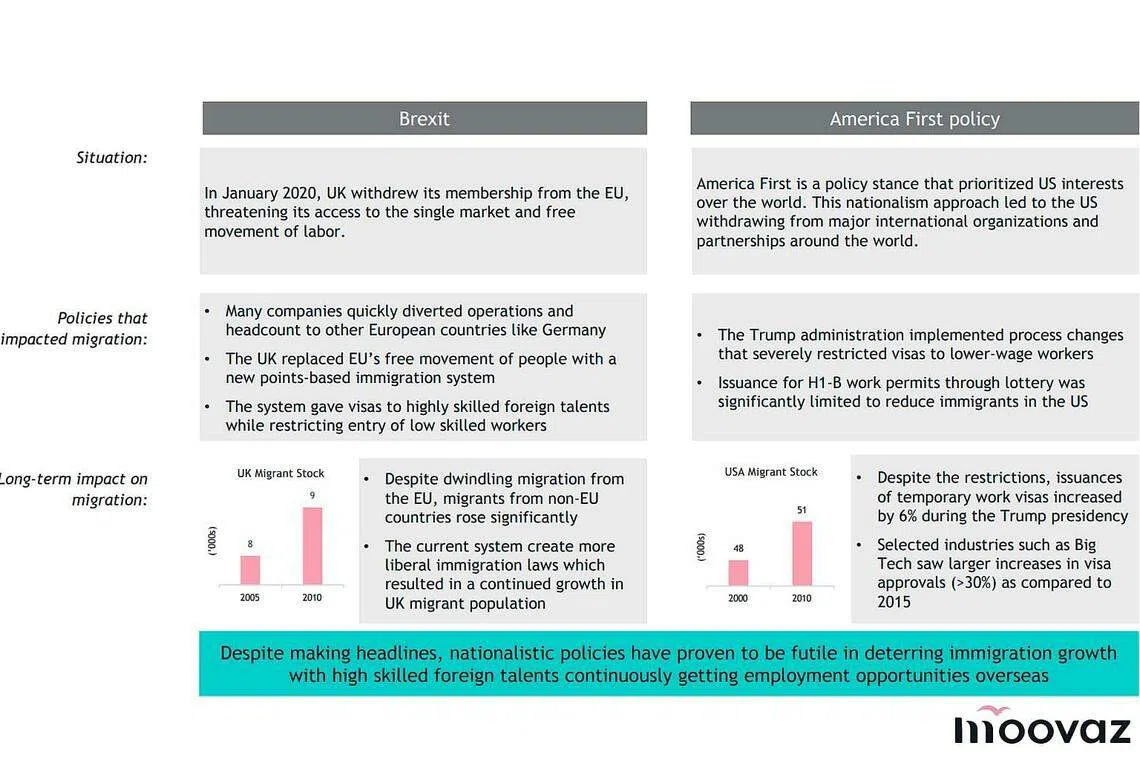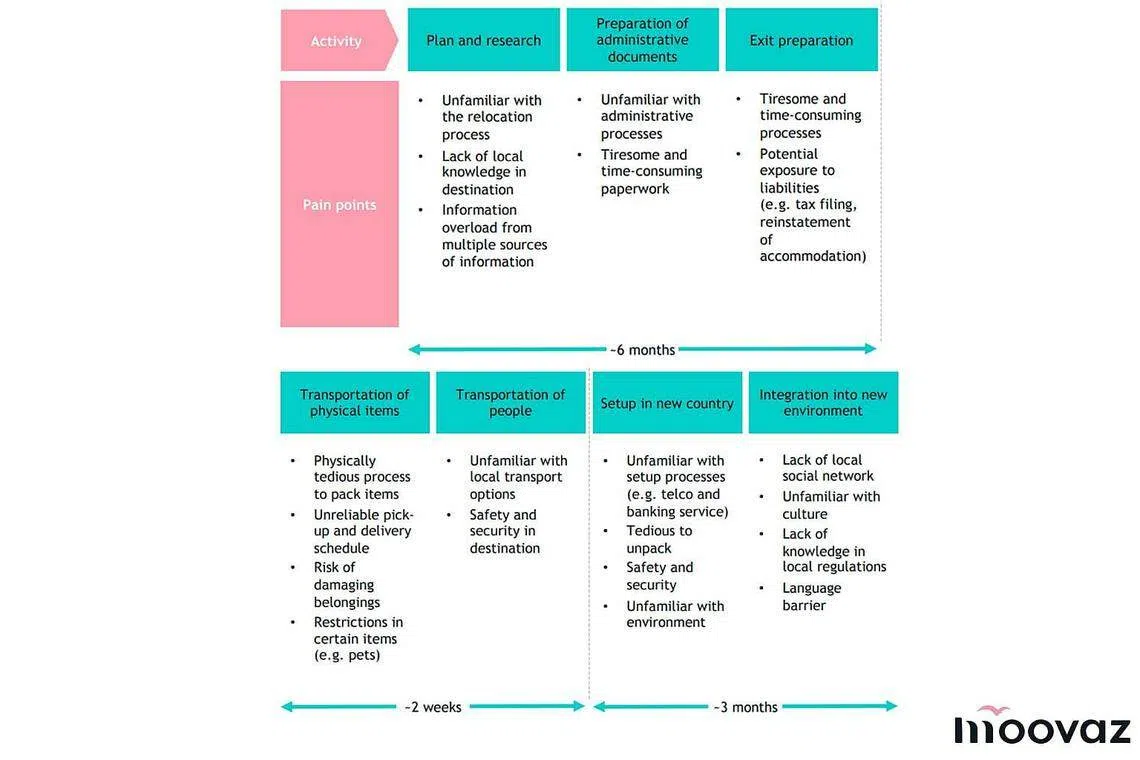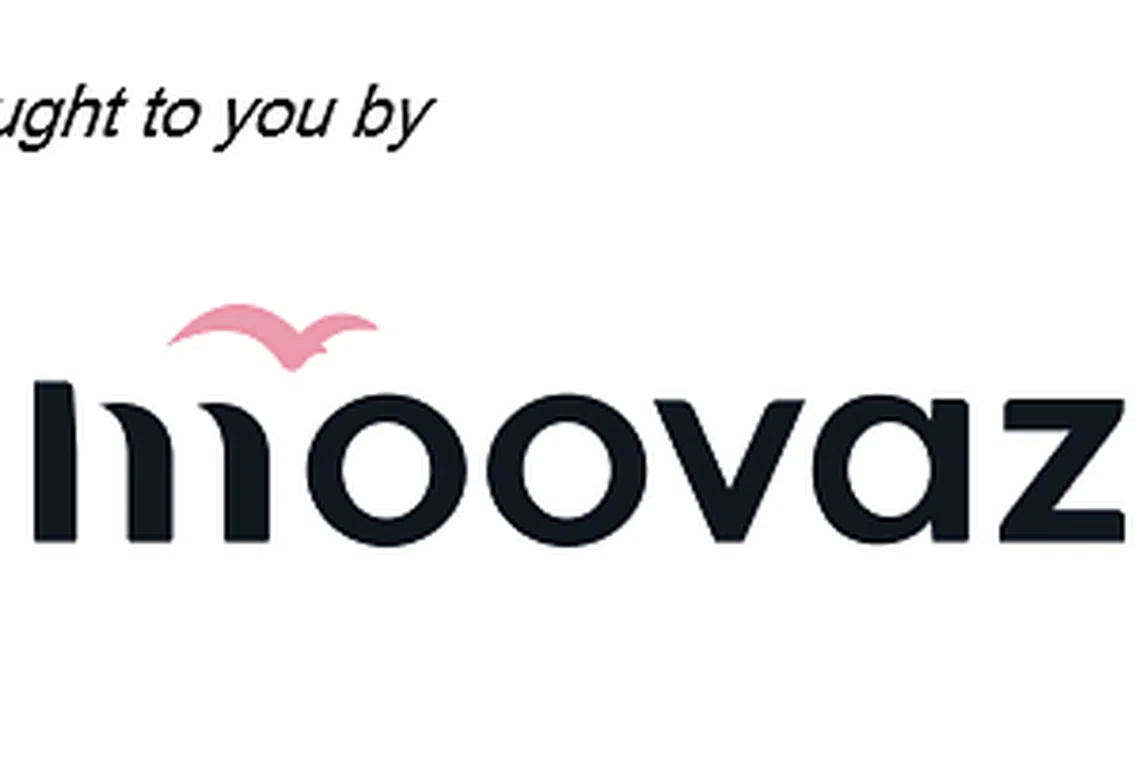How the pandemic impacts global relocation trends
As demand recovers, relocation service providers can leverage technology to meet changing consumer demands and to remain competitive, says international relocation technology provider Moovaz
As borders reopen, people will continue to want to seek a better quality of life and career prospects outside their home countries. These are two key reasons that have driven the 2.4-per-cent compound annual growth rate of global relocation, from 212 million people in 2010 to 268 million in 2020.
Emerging from the experience of the pandemic, health and safety are now the top considerations for those who relocate for work, according to a survey by the Boston Consulting Group (BCG) and The Network, a global alliance of more than 60 leading recruitment websites. Almost 209,000 global workforce respondents in 190 countries were polled from October to December 2020.
Beside a country's economic recovery and employment opportunities, its pandemic response, social support system and openness to foreigners have become key factors that affect its attractiveness as the competition for talent becomes increasingly global.
Compared to developed countries like the United States, Asian powerhouses Singapore, South Korea and Japan are performing better in a ranking of the world's top relocation destinations in a March 2021 BCG report.

With Asia's economic rise and the acceleration of remote work, the inflow of global talent to this part of the world is expected to increase, says Mr Lee Junxian, co-founder and CEO of Moovaz. As investments and supply chains pivot to the South-east Asian region, overseas deployment of employees to the region could also expand.
"We should all embrace the fact that remote work and the global war for talent will be enormous features of the post-pandemic world. There is no turning back," says Dr Parag Khanna, advisor and chief futurist of Moovaz.
Navigate Asia in
a new global order
Get the insights delivered to your inbox.
"They are voting with their feet. Those with capacity, talent and connections are able to live wherever they want to be," he says, referring to remote workers. "One telling metric, to predict the success or failure of any society in the world, would be their ability to attract the skilled youths of tomorrow and today."
Politics, pandemic and global mobility
Historically, the tail winds behind global mobility are strong and resilient. For instance, despite tightened trade and immigration policies, such as the United Kingdom's Brexit and America First policy during former US President Donald Trump's term, the migrant count in both countries still rose significantly, according to research done by Norton Rose Fullbright, UK and EU, Henly & Partners, and HBS.
The same trend was seen during the Sars outbreak in 2003 and H1N1 influenza pandemic in 2009, where international travel rebounded and global migration rose after movement restrictions eased. Moovaz foresees a similar trend for migration in the time of Covid-19, adding that control measures may only impact migration in the short term.

Political events such as Brexit were not singular in driving global mobility in recent years, with several other large-scale factors also impacting the megatrend.
"There are certain drivers of global mobility in various points in history, and they can categorically fall into either climate, economical, social or political buckets; The iterative nature of the modern world we live in continues to drive the why's, how's and where's of human movement," says Mr Shikhar Aggarwal, joint managing director of BLS International, a tech-enabled services partner for governments and citizens whose diversified business covers visas, passports and consular services, and strategic advisor of Moovaz.
New solutions needed in an evolving landscape
With the needs of potential migrants shifting as the Covid-19 situation evolves, and their destinations of choice changing due to the pandemic, HR professionals and companies need up-to-date efficient solutions to help them manage employee movements across borders.
The adoption of technology (ReloTech) will continue to help but the industry has a long way to go to better serve the needs of HR professionals and companies.
The ReloTech industry is nascent, accounting for only around 0.1 per cent of the US$32 billion global relocation market in 2020. This is a far cry from other tech verticals such as e-commerce (US$4.28 trillion in 2020) and fintech (US$111 bln in 2020).
A barrier to the ReloTech industry's innovation and growth is its highly fragmented nature, with the top 12 players accounting for 19 per cent of global market share in 2020.
These companies provide process optimisation software that help HR professionals in corporates and relocation management companies track and manage employee mobility.
The remaining 81 per cent of the ReloTech industry comprised smaller players including aggregators, market intelligence, social community networks and other process optimisation software providers.
Can ReloTech rise to the challenge?
If the ReloTech industry were to rise to the challenge of global relocation post-pandemic, transformation is needed by way of new forms of collaboration through a market network.
What this means is that a ReloTech company must be able to onboard multiple relocation service providers and relocators, such as logistics and visa solutions, into one platform to facilitate transactions for HR professionals.
The platform must then enable communication to foster relationship-building among the different stakeholders, and importantly, it must create an integrated workflow management tool to facilitate the execution of relocation journeys, from origin to final destination.

Global relocation is an often stressful, complex, multi-stage process that requires a high level of involvement and commitment from all parties involved.
A one-stop platform based on market networks that accurately captures the needs of relocators and that can recommend the right services will be the right solution for HR professionals and companies managing employee mobility. Read Moovaz's Human Mobility Report 2022: technology to empower the movement of people here.

In partnership with Paloe
Decoding Asia newsletter: your guide to navigating Asia in a new global order. Sign up here to get Decoding Asia newsletter. Delivered to your inbox. Free.
Copyright SPH Media. All rights reserved.
